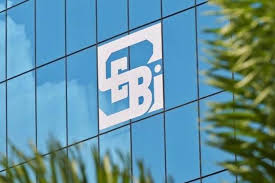Securities and Exchange Board of India (SEBI) has permitted commodity exchanges to launch options trading in commodity futures. Introduction of options trading is expected to enhance the depth of the commodity markets for hedgers and traders.
Background Information:
Commodity exchanges in India had been seeking the permission to launch options trading since long time. In September 2016, SEBI had granted permission for options trading in commodities. However due to lack of clarity on settlement and pricing, the exchanges did not launch options trading.
- Options contract offers the buyer the right, but not the obligation, to buy or sell a stock/commodity/asset at an agreed-upon price (referred to as strike price) during a certain period of time up to a specific date.
- Futures contract is an agreement between two parties to purchase or sell a stock/commodity/asset at a pre-determined price on a specific date in future.
More Details about options trading in commodity futures:
- As of now, SEBI has permitted each exchange to launch options on futures of only one commodity.
- Commodity derivatives exchanges are required to take prior approval ofSEBI for launching options contracts.

- Options contract of only those commodities that are among the top five in terms of total trading turnover value of previous 12 months will be permitted.
- The underlying for the options contract will be the futures contract of the commodity rather than the spot price.
- Moreover, the average daily turnover of underlying futures contracts of such a commodity in past one year should be at least Rs 200 crore for agricultural and agri-processed commodities, and Rs 1000 crore for other commodities.
- SEBI has also stipulated necessary guidelines with regard to the product design and risk management framework to be adopted for trading in options oncommodity futures.
SEBI asks commodity bourses to set up investor service fund
On June 13, 2017, SEBI said, Commodity exchanges have to compulsorily set up investor protection and service funds.
SEBI Guidelines for Investor Service Fund (ISF):
- Commodity derivatives exchanges have to set up Investor Service Fund (ISF) for providing minimum facilities at various investor service centres.
- At the initial stage, the exchange should contribute at least Rs 10 lakh towards the fund. Later, the bourse should transfer one per cent of the turnover fees charged from its members on monthly basis towards
- Investor Service Centres should have dummy terminals to display prices of commodities on real time basis, to create awareness among investors.
- The investor service centre should also have facilities for recording investor complaints as well as provide counselling services.
SEBI Guidelines for Investor Protection Fund (IPF):
Investor Protection Fund (IPF) of an exchange should have a maximum of five trustees.
- Composition of Investor Protection Fund Trust: Out of the five trustees, three should be public interest directors and a representative from SEBI-recognised investor association. Exchange’s compliance officer will be part of the
- All the penalties levied and collected by the exchange, except for the settlement related penalties, shall be credited to the IPF.
- The bourses can fix suitable compensation limits against investor claims in consultation with theIPF However, the amount of compensation available against a single claim of an investor arising out of defaulter by a member broker should be at least Rs 1 lakh.
- While the bourses can utilise the income earned on theIPF corpus towards promotion of investor education and awareness programmes, the supervision of utilisation of interest on IPF will be with the
- Any investor claim arising out of a default of a broker/ member of the bourse will be eligible for compensation from
The exchanges are required to maintain separate bank accounts for maintaining corpus of the IPF as well as the ISF.
Quick Facts about SEBI:
- Formation Year: 1988 (as non-statutory body). It received statutory powers in 1992 through SEBI Act, 1992.
- Purpose: Regulation of Securities Market in India
- Headquarters: Mumbai
- Current Chairman: Ajay Tyagi





